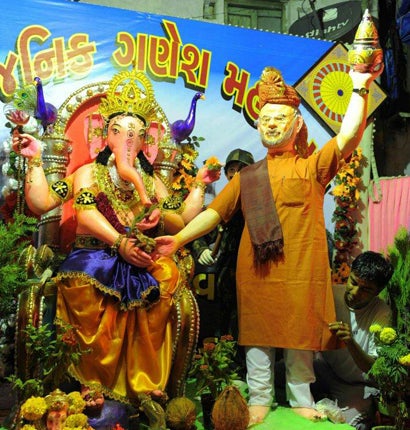Gareth Price: This will show if anything has been learnt from past troubles

From independence in 1947, India has prided itself on its religious tolerance. India was secular – dominated by Hindus, but with substantial populations of Muslims, Sikhs, Christians and tribal groups. India represents a mosaic of different religions, languages and ethnic groups.
At times, this narrative has faced challenges. Communal clashes between Muslims and Hindus are not infrequent, and the insurgency in India's only Muslim-majority state, Kashmir, reflects religious intolerance.
Ayodhya is perhaps the most significant physical symbol for those that believe that India should move away from its secular origins and become a more explicit Hindu state. The Babri Mosque had been built on the foundations of a temple, believed to have been the birthplace of Rama, a Hindu deity.
In 1992, a protest of around 150,000 Hindu nationalists grew into a riot; the mosque was destroyed. The court ruling on ownership of the temple, delivered yesterday, was pending since then.
Much has changed since 1992. In the 1990s the Congress Party was threatened by an emboldened Bharatiya Janata Party (BJP) which espoused the notion of "Hindutva", that India should reflect the Hindu society it predominantly is. Ayodhya became the focus of BJP resentment.
In 1998 the BJP came into power. Many saw it as the natural party of government (with Congress in apparently terminal decline). It appealed to rabid Hindu zealots and those who liked a party which appeared to take more overt pride in being Indian. After its six years in power, the BJP has been defeated by Congress in two general elections. The party needs flammable issues, like Ayodhya, to ensure its more hardline apparatchiks turn out the vote. But more progressive voices in the party believe focusing on Hindu nationalism makes it unelectable. Its response to the verdict will indicate the party's future direction.
India, too, has moved on. There is anger at inequalities, most clearly articulated through a Maoist rebellion. Since the Gujarat riots of 2002 there have been no severe "communal" riots. Narendra Modi, the state's chief minister accused of complicity in the riots, has tried to move away from his firebrand past, and reposition Gujarat as India's economic hub.
The government prepared for the worst in the run-up to the verdict. But it would seem that what appears to be a sensible verdict, attempting to appease Hindus and Muslims, has had a conciliatory effect. Each side, at least, could claim the other had lost. Like the BJP, Congress faces a dilemma. It does not want to alienate Muslims or Hindus.
Communal tendencies on both sides are likely to try to use the verdict, and the certain appeal, to stir up trouble. Their success, or lack of it, will signal how far India has progressed.
Gareth Price is head of the Asia programme at Chatham House

Join our commenting forum
Join thought-provoking conversations, follow other Independent readers and see their replies